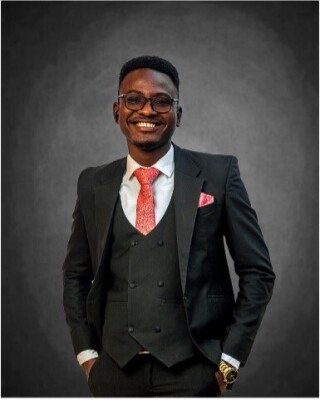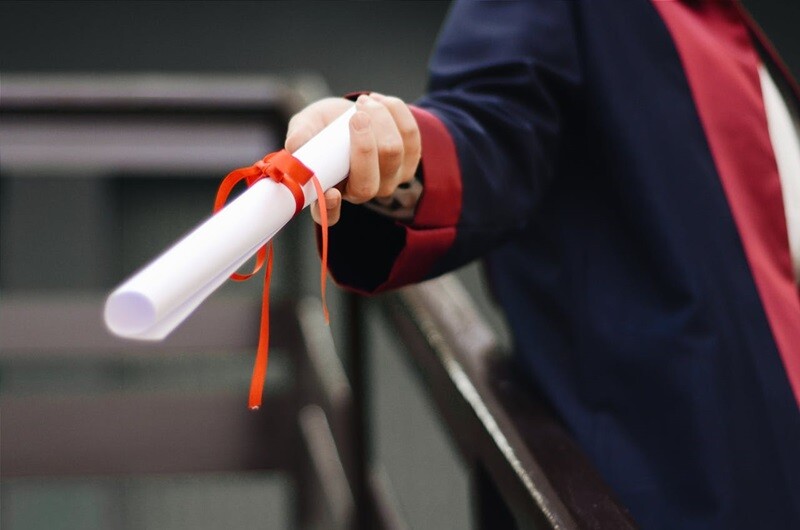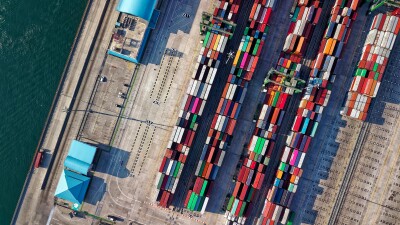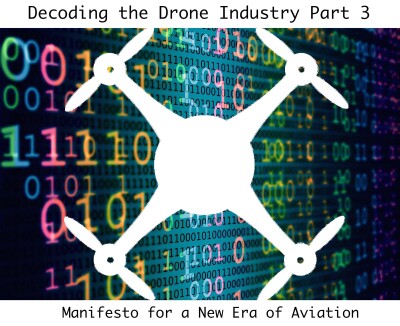Although the four 2024 UAV Empower: Path to Leadership Event Scholarship winners have different backgrounds and interests, they are united in their passion for advancing uncrewed technology and in finding new ways to use these systems to improve people’s lives. For Daniel Alayande, that passion is focused on making drone technology more available to farmers and others in his native Nigeria and in expanding opportunities in the UAV industry through training and education.

Recently, Commercial UAV News spoke with Daniel to learn more about his personal and professional goals and his hopes for the future of the drone industry.
Commercial UAV News: How will you use your UAV Empower: Path to Leadership Event Scholarship? What are the next steps you are planning in your career and education?
Daniel Alayande: For me, this scholarship is more than just a ticket to an event. It’s a chance to grow, connect, and keep building on the work I’ve already started.
I plan to use this opportunity to learn as much as I can. From the sessions to the side conversations, I’m looking forward to soaking up ideas, insights, and real-world experiences from people who’ve been in the drone industry for years. I want to better understand where the industry is headed and how I can plug into that future in a way that makes sense for Nigeria, and then for Africa as a whole.
As a licensed drone pilot, I’ve spent the past few years specializing in agricultural drone operations, spraying over 3,000 hectares to help farmers improve their yield and cut down on manual labor. But beyond the flying, I’ve also taken on roles that involve coordinating projects, engaging communities, and leading teams. That mix of technical know-how and leadership is something I’m proud of, and I’m always looking for ways to grow it.
What excites me about this event is that it offers both inspiration and direction. I’m hoping to come away with new tools, strategies, and connections that I can bring back home and apply in ways that create real impact, not just for me, but for the people and communities I work with.
And I won’t be going alone in a sense. I plan to share what I learn through trainings, mentorship, and hands-on projects that make drone technology more accessible and useful across Nigeria. That way, the knowledge multiplies, and the benefits reach more people.
This scholarship would be a big step forward in my journey, not just as a drone pilot, but as someone working to build a future where technology solves real problems and opens new doors for others.
Commercial UAV News: Who has inspired and encouraged you as you have pursued work in drones? What have you learned from your teachers and mentors?
Daniel Alayande: I’ve been inspired and supported by a number of people throughout my journey, but a few have really stood out along the way.
Femi Adekoya was the first person who introduced me to the practical side of drone work in precision agriculture. We worked together on the field, and through that, I got to experience first-hand how drone spraying operations really work, from collecting data to flight planning and executing precise applications. That experience played a key role in shaping the kind of work I do today.
I’ve also learned a lot from Eno Umoh. He’s the founder of Global Air University and the current chairman of the African Drone Forum. What I respect most about Eno is how he’s taken his experience and turned it into systems that help others succeed. Through Global Air University, he’s helped drone business owners scale without burnout, using smart strategies instead of constant hustle. From him, I’ve learned the value of thinking long term, of building structures that allow your work to grow sustainably and reach more people.
And I can’t leave out Emmanuel Eneh. He’s actually the first person who introduced me to the idea of building drones. Back then, we were using paperboard and Styrofoam to try and put things together, just experimenting and figuring things out with what we had. He believed in what we were doing and supported me in different ways, sometimes financially, sometimes just by being there and encouraging me to keep going. From him, I learned resilience. His support in those early days reminded me that even when things seemed impossible, staying committed would eventually lead somewhere.
Each of these people has played a part in helping me grow, and the lessons I’ve learned from them continue to shape my journey today.
Commercial UAV News: In your scholarship application you wrote: “I believe that by fostering an inclusive environment, we can unlock the full potential of drone technology and create solutions that truly benefit all of humanity.” Discuss how you came to believe in the importance of creating “an inclusive environment,” and explain how your work will further efforts to expand opportunities in the industry.
Daniel Alayande: That belief comes from what I’ve seen and experienced over the years. Working in the drone industry as a young person from Nigeria, I’ve found myself in spaces where there weren’t many people who looked like me or shared my background. And while that could have been discouraging, it actually pushed me to start thinking differently about what inclusion really means.
One of the moments that really shaped this for me was during my time at the African Drone Academy in Malawi. Our cohort had people from across the continent, different countries, different cultures, and different problems we were each trying to solve. I remember one of the participants from Ethiopia talked about using drones and AI to detect pests in livestock. That was something I had never even thought about, and it opened my eyes to just how powerful diverse perspectives can be. It wasn’t just a cool idea; it was something that came directly from the challenges in her community.
That’s when it really clicked for me. Inclusion is about more than just having different people in the room. It’s about creating space for different ideas, different experiences, and different ways of thinking. That’s how real innovation happens.
In my own work, I try to carry that mindset with me. Whether I’m mentoring students, leading training sessions, or just sharing my own journey, I’m always thinking about how to make the space more welcoming and accessible for others. I’ve had people support and encourage me along the way, and I want to be that kind of support for others too, especially those who are just starting out and might not have access to resources or opportunities yet.
Moving forward, I want to continue creating opportunities for more people to explore what’s possible with drone technology. Whether it’s through education, collaboration, or community projects, I believe the more voices we bring into the conversation, the stronger and more impactful this industry can be.
Commercial UAV News: Looking ahead, what do you hope to be doing in one year or five years? Do you think you will still be working with drones?
Daniel Alayande: Definitely, I still see myself working with drones, but in a much bigger and more strategic way.
In the next one year, I hope to deepen my technical skills and expand my work in precision agriculture. I want to take on more projects across Nigeria, helping farmers adopt drone technology to improve efficiency and increase their yields. I also want to keep mentoring others, especially young people who are just getting into the space. I’ve seen how much potential is out there, and I want to help others find their path in this industry just like I found mine.
In five years, I see myself running a fully established drone solutions company that works across agriculture, infrastructure, and even public health. I want to be building systems, not just flying drones, creating programs that train people, designing services that solve real problems, and helping build a stronger drone ecosystem in Africa. I also see myself collaborating with governments and private sector players to shape policy and push for wider adoption of drone technology where it’s most needed.
So yes, I’ll definitely still be in the drone industry, but with a wider reach and bigger impact. For me, drones have never just been about flying. They’ve always been about solving problems and creating opportunities. That’s what I want to keep doing, one step at a time.















Comments